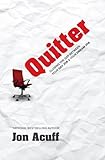There are many full-time writers on here and thought I'd ask when you decided to quit your day job and work for yourself. What was that moment when you thought, I can REALLY do this and make a living. Just curious! 





^This^GeneDoucette said:I'm facing this dilemma right now.
I made more this year (already) than I have in my day job. But to make enough consistently to be comfortable with leaving behind a full-time job of (now) 29 years and health care coverage, I need to put out more than the 1-2 books per year I currently produce. But I don't have enough time to put out more than 1-2 books per year, and I won't until I quit my day job.
So basically, to afford to quit my day job, I need to first quit my day job.
This is almost my answer, too. I mean, being a guy, not the single mom part. But APS nearly killed me twice and the first time I made time for writing and the second time I decided to start publishing. My actual plan was to move away from the job I hated and edit software development papers, but when I discovered that self-publishing existed and "hard work" was a big part of success, I thought it was a good match. So, at least until I recover enough to work 8 hours out of the house, all my time is going into self-publishing. Once they've fixed my lungs, I'll reevaluate at the start of 2018 and see if self-publishing is working for me. (And if not, I'll still keep writing and publishing, just not full time.)Pandorra said:After I was diagnosed with APS and Lupus and lost my main vision in a fall that resulted in a TBI. I worked in criminal justice, so the vision was a huge thing, I tried to stick with it anyways but after multiple clots and nerve issues, I was told that my line of work was putting me at severe risk. I was a single mother, my disability checks sucked and I needed something I enjoyed that I could do from home.
Before all that, I just wrote for fun and because I couldn't NOT write.. the money wasn't an issue.

Pandorra covered it, but basically an autoimmune disorder that tries to kill you with clots. It runs the gamut in terms of severity and treatment. I'm at the opposite end of the spectrum where blood thinners work, but the doctors missed the cause of the clots the first time and that led to a lot of preventable damage the next time. I guess the moral of my story would be that if you ever have a clot, insist that they run a panel to check for clotting disorders even if they're "sure it was a one-time, isolated incident that won't happen again." Oh, and definitely out of the car every hour or two on long car trips. I may have had APS, but lots of people my age or younger without APS in the hospital had just forgotten to get out of the car and run around.Gabriella West said:Great stories here. What is APS?
